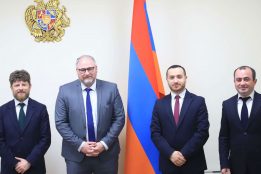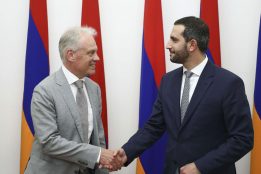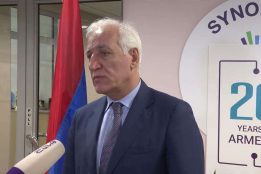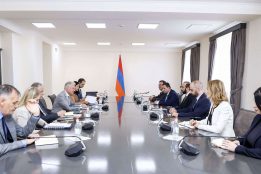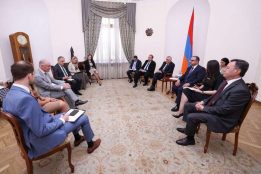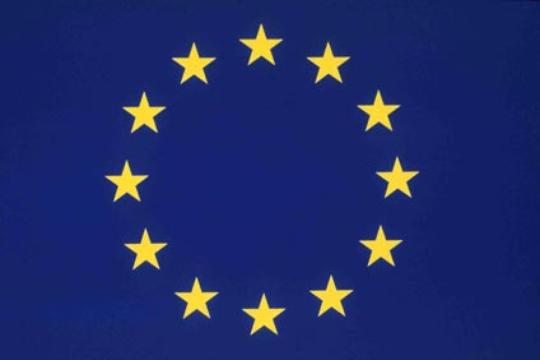
European Policy Center touched upon EU’s normative peace-making aspect. Find the article below.
“Talk of mediation these days soon moves on to tackling crises and conflicts. Crisis management is something the EU is doing within its own borders these days,” said Tanja Tamminen, a researcher at the Finnish Institute of International Affairs.
“The EU is facing major threats of outbursts of violence within its borders, amid popular disenchantment with the EU. Leaders are unable to take major decisions to address the crisis. This has a spin-off effect in terms of EU action in conflicts outside its borders, and raises fears about a lack of action in terms of foreign policy,” Tamminen said.
“How can the EU’s mediation role be strengthened? More coordination between the EU institutions is needed, for example between the Council and the European Parliament. With the creation of EU delegations abroad and the EU High Representative, eyes are increasingly turning towards these new tools alongside the existing ones,” she said.
“A peace centre has been opened in Burma/Myanmar, primarily funded by the EU. This was a success story for the EU. [European Commission President José Manuel] Barroso was there to open it,” said Kimmo Kiljunen, Special Representative for Peace Mediation of the Foreign Minister of Finland.
“The first challenge is to help the mediators. There are many different actors there. It’s a very competitive business. In Southern Thailand, the mediators undermined each other’s work. Mediators must cooperate, not compete [between themselves],” Kiljunen said.
“Many discussions may take place between leaders, but the government level is just one aspect. NGOs are crucial partners in the mediation process. The EU has recognised this in Myanmar,” he said.
“The EU is a ‘no’ culture. ‘Don’t go there’, ‘don’t meet him, he’s not representative’, ‘don’t meet him, he’s unrecognised’, ‘don’t meet him, he’s a terrorist’. But of course not all of the players are recognised – it’s a conflict! So immediately this poses a problem for the EU,” Kiljunen said.
“The process is hugely complex and EU bureaucracy is terrifying. Flexibility is needed. Focus on the details and you’ll kill the process. The Finnish government has already understood this,” he said.
“South Sudan became independent last year after a long conflict had concluded with a referendum. The UN mandate expired last year after independence, despite some issues being unresolved, such as oil revenues and the delineation of the border,” said Fredrik Wesslau, Political Advisor to the EU Special Representative for Sudan and South Sudan.
“The EU provides input and ideas into the mediation process. The EU funds the Mbeki panel and the border programme. The EU seeks to find an international consensus with countries like the USA, and it reaches out to the likes of Saudi Arabia and China to see how they could lend their weight to the peace process. We’ve been quite successful here,” he said.
“There’s a CFSP mission in South Sudan to buttress the peace process. The EU’s role in peace mediation between the Sudans potentially provides a good model for peace-making in Africa – supporting the African Union, which takes the lead,” the EU official argued.
“The EU’s policy towards the Balkans is to extend the EU peace project and zone of peace and security to the region. Only the EU can do this, because the key goal is eventual EU accession,” said Alessandro Rotta, Advisor on Political Affairs to the EU Special Representative for Kosovo.
“This role was recognised by the decision to award [the EU] the Nobel Peace Prize. I think it was for Central and Eastern Europe, but it also applies to the Balkans,” Rotta argued.
“Since 1999, other actors have been on the ground in Kosovo, such as the UN. But the EU has provided the bulk of institution-building support, despite being side-lined politically for status reasons,” Rotta explained.
“This is now changing. The Council wants to make a more substantial policy offer. There had always been a policy blank due to the status issue. This is now changing too,” the EU official said.
“Kosovars are the only Balkan citizens who can’t travel visa-free to the EU. We’re starting to address these issues in several ways. There is now a political face of the EU there (the EU Special Representative), which adds political clout and clarity (a one-stop shop),” he said.
“We’re starting to move towards [hard policy], despite the unresolved recognition issue. It’s a situation of ‘constructive ambiguity’,” Rotta said.
“If you have a successful mediation process, then what kind of humanitarian effort can you put behind it to ensure the peace dividend?” asked Andrew Sherriff, Head of Programme at the European Centre for Development Policy Management.
“The EU has a more neutral profile than some of its member states. The EU is less partisan. But it has something to offer because of that. It’s still a political player,” Sherriff argued.
“We had a pilot phase of one year to build capacity. We managed to achieve quite a lot, but it wasn’t easy,” said Tomas Henning of the Division for Conflict Prevention, Mediation and Peace-building at the European External Action Service (EEAS).
“We’re moving from the pilot phase to implementation, so we need to prove our added value. We’re going to get our own budget line, which is crucial. We need to improve outreach, especially regarding what mediation actually is. It’s not just about headline peace talks – it’s about low-level efforts in the delegations too,” Henning said.
“The EU house is still a bit of a mess. We need to ensure more interaction and ensure that we’re doing what the Commission is funding. Cooperation with external actors is crucial. You can’t act alone. We’re already exchanging information with the United Nations,” he said.

















